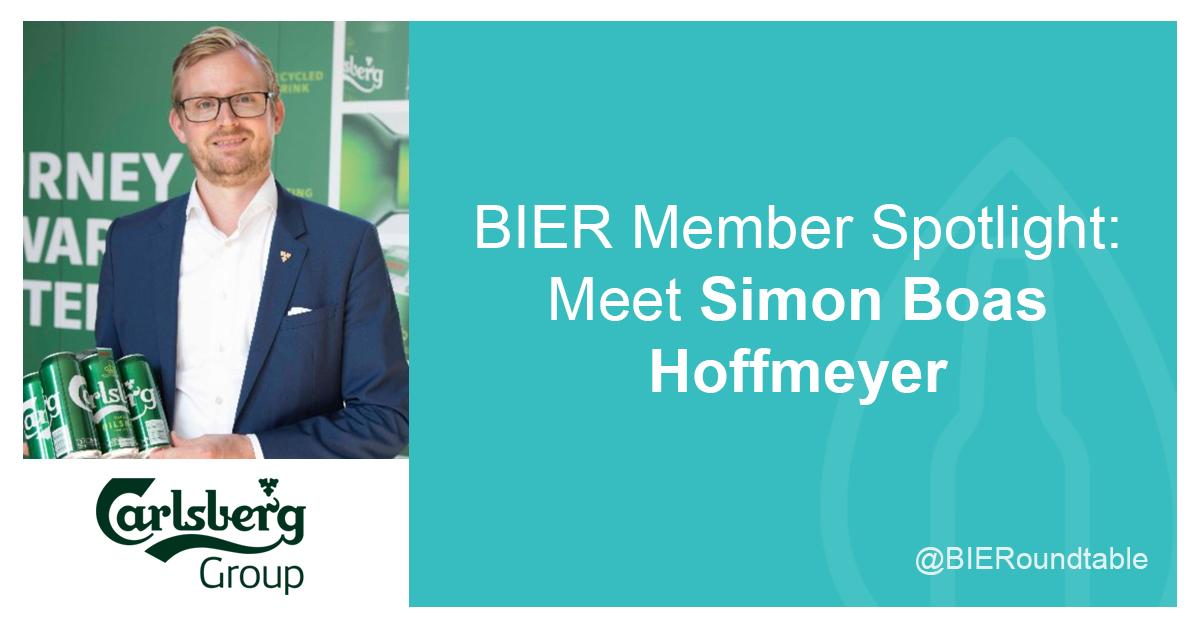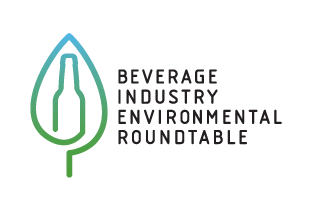BIER Member Spotlight: Simon Boas Hoffmeyer
Meet Simon Boas Hoffmeyer

Name: Simon Boas Hoffmeyer, Senior Director, Sustainability & Communications
Company: Carlsberg Group
Connect with Simon on LinkedIn and Twitter
Welcome to our series aimed at spotlighting the individual leaders within BIER member companies and stakeholder organizations. Learn how these practitioners and their companies are addressing pressing challenges around water, energy, agriculture, climate change and what inspires each of them to advance environmental sustainability in the beverage sector and collectively, overall.
Briefly describe your role and responsibilities and how long you have worked with your company.
I'm the head of sustainability at the Carlsberg Group. My team and I are responsible for managing the strategic approach to sustainability across our businesses at Carlsberg Group. At a high level, we are working to translate societal trends and reputational aspects, into something that has meaning to every single person that works within different parts of our organization. In that aspect, it is a little bit of a bridging role. Sometimes our role is very practical, where we have the absolutes in expertise within certain areas. Other times we are more of a strategic sparring partner. We also support those with random questions too - because everything is related. In essence, we're talking about anything from the environmental area to the social area and also to governance and reputational topics. So, with all that said, our sustainability team is in a very important position to influence and cooperate with all the different parts of our value chain and our businesses across the world.
I have been with Carlsberg Group for 15 years working in various types of the same role you could say. Firstly, I started working within corporate communications and company branding. However, my interest was very much on the business development side, and how societal movements are translated into concrete business action. I've always been more interested in how sustainability is key to help the business become stronger and better.
From a practical perspective, what does that mean in a substantial way? Well, that is a twofold answer. In one way, that means identifying societal stakeholders’ risks and propose a course of action to mitigate them. That is more or less traditional risk management with the only difference that we are oftentimes identifying topics that might not have a direct impact in the next three years, and therefore these topics might fly under the radar in traditional risk management processes. The other part is the opportunity; and obviously, that's the one, in my opinion, that is the most exciting. So looking at both our core business processes, as well as, the adjacent ones and including everything from the rules, to the packaging, to the way it's transported, to the way it's sold, to the way that we market it, and identifying ways that can make us more attractive to the wider group of stakeholders. That can then, in turn, create value of various sorts.
This can result in everything from increased sales, to making a nice, consumer-oriented, sustainable packaging innovation, to simply saving money from doing things differently in our supply chain. It also means getting access to exciting new technology through partners that might be small startups that can help us rethink the way we work with our suppliers. As such, there's a wide range of different things that happen within that opportunity space. That is a core part of what the sustainability department should do, seek out opportunities to improve the business, make it more resilient, and simply better. Additionally, it should also help to mitigate any risk from stakeholder and societal influences that the company is exposed to as well.
When we look at our sustainability program, we take our point of departure from materiality. This is something that I always preach because I think it is so important that what you focus on as a corporate entity should take its point of departure in what the outside world believes are the most material topics to you. I will share a couple of examples of what I mean specifically. When we look at the agenda around climate change, it is a major topic that is influencing everyone that operates on this planet, whether they are businesses or a person. But as a brewer, we are actually more influenced by climate changes than many others because we provide a natural product that is fully linked to healthy ecosystems and healthy habitats. As a reminder, Carlsberg Group is not in this for the short term. We're in this to make beer for the next 170 years as well. Being a foundation-owned company, that is a very big part of why we work with sustainability, both short-term and long-term. Our aim is to make sure that we live up to our founders’ heritage and saying we want to stick around.
Our strategy for the long term involves having our products remaining relevant. This means maintaining access to raw materials at a price that consumers are willing to pay. In our most recent 2020 Sustainability Report, we share how we have assessed each of the topics. Building upon that, we focus on materiality as it relates to a geographic area and specific stakeholders believing it’s important to have a different type of action towards customers and consumers in one area of the world than you do in another location.
Then, of course, they're also areas of materiality that are similar. So, for example, when we have breweries that are aiming at carbon neutrality, this is globally relevant. We have breweries today both in Asia and in Western Europe that are already carbon neutral and our employees and our stakeholders are reacting equally well to that. However, the local activation might be different.
Ultimately one of the most important key takeaways I’ve learned in my career is that sustainability comes from the mass of people working towards the same targets. It's not going to be generated from a small sustainability team sitting in a group function. Sustainable progress comes from the collective.
Learn more Simon Boas Hoffmeyer in this BIER Member Spotlight.

